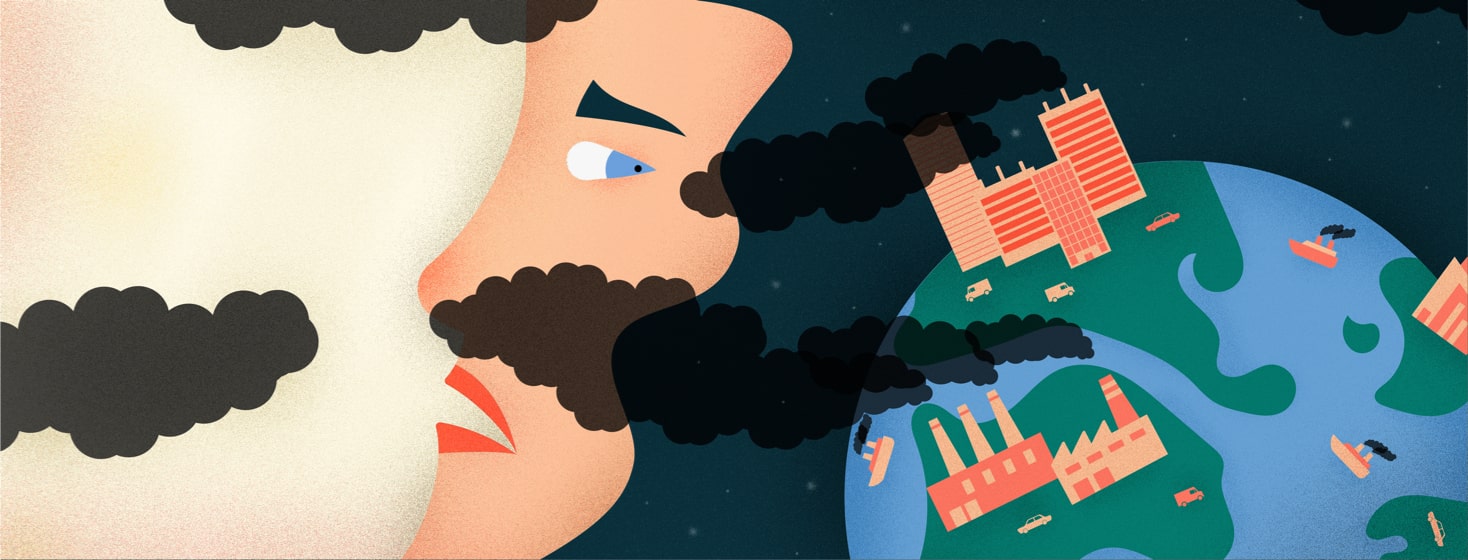Is Climate Change Making Your Allergies Worse?
Changes are taking place in the climate. These include shifts in the atmosphere's makeup and the weather. These changes are a cause of concern for all people. People with allergies are among those who may be affected by climate change.1-4
Human actions are causing some of the changes in the climate. People are burning fossil fuels like coal, natural gas, and oil to produce energy. Burning these fuels emits greenhouse gases that retain heat. Carbon dioxide (CO2), nitrous oxide, methane, and water vapor are among these gases.1,2
Because of the higher amount of CO2 in the air, the temperature of the earth is climbing. Over the last 100 years, the temperature has risen by almost 1.5 degrees Fahrenheit. This shift is known as global warming.1,2
Also, more extreme weather is occurring. This includes droughts, floods, heatwaves, storms, and wildfires.1,2
How climate change affects allergies
Climate change can adversely affect anyone's health. The impact can be greater on children, older people, and those with a prior illness. Climate change can increase the risk and severity of asthma, allergies, and other diseases by raising levels of pollution, mold, and pollen.1-4
Greenhouse gases and smoke from wildfires pollute the air. The pollution causes a drop in air quality. Low air quality can cause problems with breathing, heart and lung function, and immunity.1,2
Mold thrives in the warm, wet conditions that some climate changes bring. People can be allergic to mold. Mold can also worsen breathing problems.1,3
Increases in CO2, rain, and the temperature affects the pollen found on flowers, grass, trees, and weeds. One study showed that warmer temperatures are linked to pollen changes more than CO2 levels, frost, and rain are. A change brought about in certain proteins in the pollen can make it stronger and able to grow in larger amounts for longer.1-4
The connection between pollen and allergies
Pollen is a big trigger for allergies such as hay fever and allergic conjunctivitis, in which the eyes become inflamed. Pollen can worsen the symptoms of these diseases. Worse symptoms can lead to the need for more emergency care and medicines.1-4
People can also have more of an allergic reaction when they are exposed to heavy pollen for an extended time – both of which happen with climate change. Research shows that more people in America say they are having allergic reactions now than in the past. The number of allergens causing people to react is also greater.1-4
A 2021 study looked at how climate change impacted pollen seasons in North America between 1990 and 2018. The study confirmed that climate change extended pollen seasons and resulted in greater pollen concentrations. Pollen seasons lasted an extra 20 days. Pollen concentrations rose by 21 percent.4
What you can do about how climate change affects you
Although climate change is already in motion, you can still take action to manage and maybe even lower its impact on you. Knowing what is taking place equips you to take charge of what you can. Your health is one of these things.
Talk to your doctor about how changes in the atmosphere, temperature, and weather might be affecting you. Your doctor can help you identify what may trigger or worsen your allergies. They can also prescribe drugs to ease your symptoms when allergies flare.
Your doctor may tell you to decrease your contact with air pollution, mold, and pollen. You may be able to limit your contact with these and other allergens by:1
- Spending less time outside when the air quality is low and the pollen level is high
- Taking a bath or shower and changing your clothes after being outdoors
- Looking for water leaks and mold where you live and work
- Seeking the help of experts to fix leaks and remove mold right away
- Improving the air in your home with air filters and dehumidifiers

Join the conversation